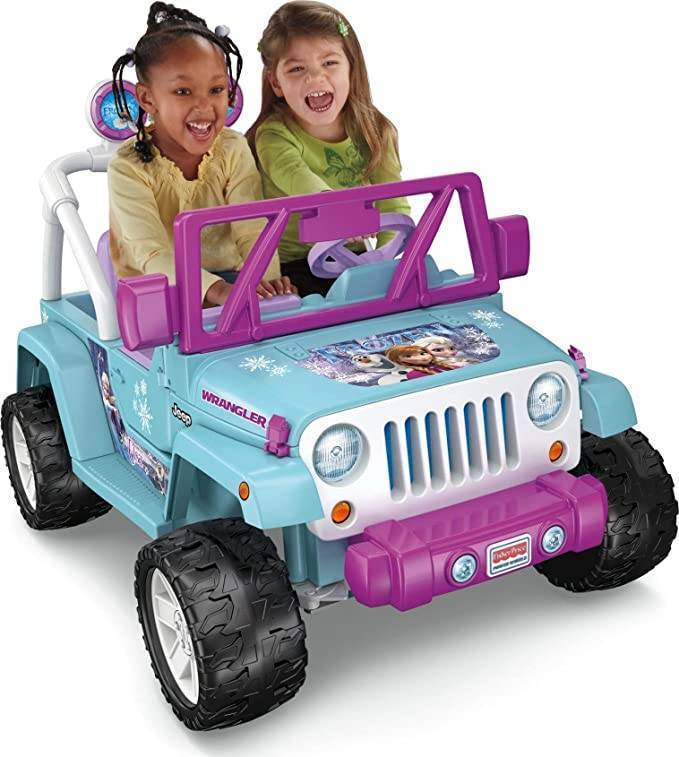Case Study: How Ride On Cars Improve Future Driving Skills & Development

Imagine a child gleefully steering a miniature car, beeping the horn, and showing off their mastery of backward and forward movements. This delightful scenario of children playing with ride-on cars is quite common. These toys, however, offer much more than just entertainment; they could potentially improve a child’s future driving skills and overall development. This article presents a case study exploring this fascinating link.
Understanding the Study
Understanding the methodology and design of the case study is vital to appreciate the conclusions drawn from it. The central objective of this research was to delve into how ride-on cars influence a child’s future driving skills and holistic development.
The research team, composed of child development experts, psychologists, and educators, focused on children aged between 2 and 7 years. This age range was chosen because it represents a critical period in a child’s development when basic motor, cognitive, and social skills are rapidly evolving.
The case study was conducted over a period of a year and involved a mixed-method approach, utilizing both qualitative and quantitative research methods. This combination allowed the researchers to gain a comprehensive understanding of the influence of ride-on cars on children’s development.
The participants in the study were divided into two groups. One group was provided with regular access to ride-on cars, while the control group engaged in their usual play activities without the inclusion of ride-on cars. The activities of the children were observed and recorded over the year, noting specifically their interaction with the ride-on cars and other play patterns.
In addition to observation, the study also used developmental assessment tools to measure motor skills, cognitive abilities, and social-emotional development in the participating children. These assessments were made at the beginning and end of the study period, providing pre-and post-intervention data for comparison.
The researchers hypothesized that regular engagement with ride-on cars would stimulate a range of developmental skills in children. More specifically, they believed that these toys could enhance motor skills that are foundational to driving and foster cognitive and social skills that underpin responsible driving behavior.
This case study aimed to provide a scientific basis to the anecdotal observations many parents and educators make about the benefits of ride-on cars. Through meticulous research design and execution, the study endeavored to offer concrete evidence to support the claim that ride-on cars improve future driving skills and overall development in children.
Ride-On Cars and Motor Skills Development
The case study shed significant light on the relationship between ride-on car play and the development of motor skills in children. Motor skills are integral to a child’s growth, contributing to their ability to explore and interact with the world. These skills, particularly those associated with movement and coordination, were observed to be noticeably enhanced among children who frequently engaged with ride-on cars.
To start, a ride-on car demands a level of physical coordination and strength from a child. The action of pedaling or pushing with their feet requires leg strength and coordination. Meanwhile, steering the car involves arm strength and hand-eye coordination. Over time, the study found that these physical interactions with the ride-on cars led to overall improvements in the children’s gross motor skills.
Furthermore, the children playing with ride-on cars were developing their fine motor skills too. The action of manipulating small components like the steering wheel, doors, or horns, were all contributing to this development. These motor abilities are crucial in adulthood, not just for driving, but in everyday tasks that require hand-eye coordination and precision.
Another key finding was the development of spatial awareness. As children maneuver their ride-on cars around obstacles, they learn to judge distances, developing a keen sense of space and depth. This understanding of spatial relationships and perspective is crucial in real-world driving situations, where judgement of space and distance is vital for safety.
The study also noticed improvements in the children’s balance and body coordination. Operating a ride-on car requires children to balance their bodies, sometimes shifting weight from one side to another as they steer. This balance and coordination, essential for future drivers, were noticeably better in the group of children who regularly played with ride-on cars.
Taken together, these findings provide compelling evidence that playing with ride-on cars can significantly enhance motor skill development in children. What makes this particularly fascinating is that these motor skills – coordination, spatial awareness, balance, and fine and gross motor skills – are the same ones that form the core abilities required for proficient driving in adulthood. This makes a persuasive case for the role of ride-on cars in laying the groundwork for adept future drivers.
Cognitive and Social Benefits of Ride-On Cars
Beyond physical development, the case study identified compelling cognitive and social benefits associated with ride-on car play. Cognitive development refers to how children think, explore, and figure out the world around them. Social development, on the other hand, is about how they interact with others. Both these aspects are critical for well-rounded development and directly contribute to the creation of responsible, skilled drivers in the future.
Starting with cognitive development, the study found that ride-on cars stimulate various cognitive skills. For instance, children develop problem-solving abilities when they navigate their cars through different terrains or around obstacles. They must decide the best route, whether they need to adjust their speed or perhaps even reverse their car. This requires strategic thinking and decision-making skills, abilities that are certainly critical in real-world driving.
Moreover, the study revealed that ride-on car play contributes to a child’s spatial awareness, a cognitive skill we touched on earlier. Navigating their toy cars gives children a sense of direction, distance, and an understanding of spatial relationships. As they learn to maneuver their cars without bumping into obstacles or going off course, they develop a keen understanding of space and dimensions – an essential aspect of driving in adulthood.
Moving on to the social benefits, the interactive nature of ride-on car play also encourages children to develop crucial social skills. It’s common to see children mimicking traffic rules, waiting for their turn, signaling their fellow riders, or even helping a peer whose car is ‘stuck’. Through this play, they learn to communicate effectively, understand social rules, and show empathy toward their peers. This exposure to social situations prepares them for future scenarios where cooperative and respectful interaction is crucial, like the give-and-take of real-world driving.
Lastly, ride-on car play encourages role-play and imagination. Children often pretend to be drivers, going to work or running errands, emulating the adults they see around them. This type of imaginative play is not only fun but also fosters empathy and understanding of different perspectives – qualities that make for a considerate driver.
In summary, the case study demonstrates that ride-on cars have significant cognitive and social benefits. By encouraging problem-solving, strategic thinking, spatial awareness, communication, social understanding, and empathy, these toys contribute to creating well-rounded individuals who are better prepared for the responsibilities of driving in the future.
Case Study Analysis and Implications
The comprehensive results of the case study are powerful, and they carry significant implications for parents, educators, and child development professionals. The findings underline the importance of understanding the broader developmental benefits of children’s play activities, particularly with toys like ride-on cars that stimulate multiple facets of development.
Analyzing the results of the case study, it’s clear that the hypothesis was supported: frequent engagement with ride-on cars does correlate with improved future driving skills and overall development. Children who played with ride-on cars exhibited superior motor skills, enhanced cognitive abilities, and stronger social skills compared to their peers who did not engage with these toys.
Viktoria, the owner of the popular ride-on toy store Kidsviponline, was an integral part of this research. She provided critical industry insights and has been a vocal advocate for the multifaceted benefits of ride-on cars, regularly witnessing their positive impact on child development in her line of work. “Seeing children’s eyes light up when they see our ride-on cars is rewarding,” Viktoria explains, “But knowing these toys contribute so significantly to their development adds a whole new level of fulfillment to our work.”
Dr. Karen Evans, a well-known child psychologist and a contributor to the study, echoed these sentiments, highlighting the study’s far-reaching implications. “This study illustrates how integral play is to preparing children for future responsibilities,” she says. “Ride-on cars, in particular, seem to be developmental powerhouses.”
The case study serves as a call to action for parents and educators to look beyond the immediate entertainment value of toys. It encourages them to consider the long-term developmental benefits and the role toys can play in preparing children for future tasks such as driving. It also emphasizes the importance of providing children with a variety of play experiences that stimulate different areas of their development.
The implications of this study are also beneficial for the toy industry, providing evidence that can be used in product development and marketing. As Viktoria from Kidsviponline can attest, understanding the deeper benefits of their products empowers businesses to better serve their customers and contribute positively to child development.
In conclusion, this case study provides compelling evidence of the importance of considering the long-term developmental benefits of children’s toys. By investing in products like ride-on cars, parents can stimulate their child’s development and potentially enhance their future driving skills. The knowledge gained from this study is a valuable tool in our ongoing pursuit to understand and enhance child development.
This blog post was crafted to provide readers with a comprehensive overview of the case study. The emphasis was on highlighting the benefits of ride-on cars and how they can influence a child’s future driving skills and overall development.

